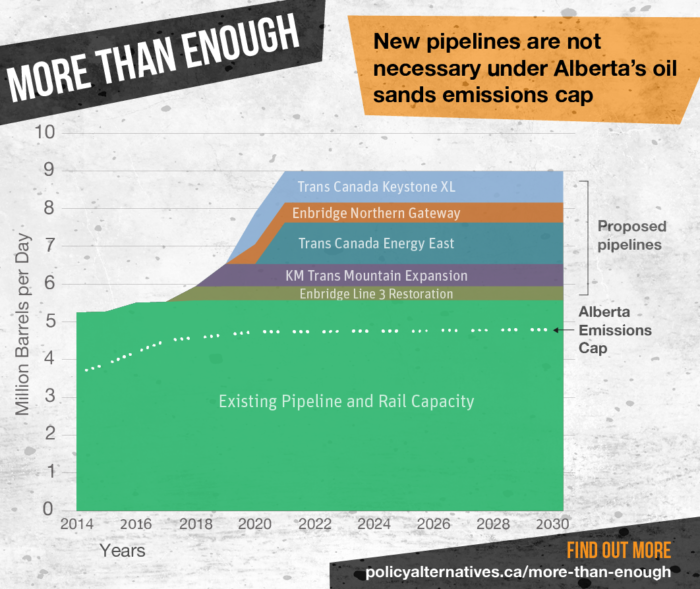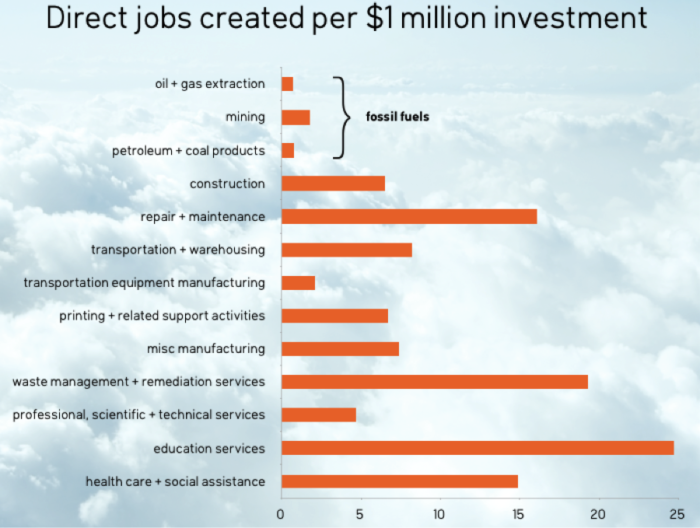Corporate Mapping Project partners including the Canadian Centre for Policy Alternatives – BC Office and the Alberta-based Parkland Institute have been debunking the economic arguments for the Trans Mountain Pipeline Expansion (TMX) proposal for years, and taking a critical look at the reasons for its approval despite the economic and environmental realities. The CMP has also examined the all-too-cozy relationship between governments and the the fossil fuel industry, and published several reports on the larger implications of continued expansion of oil sands production. We share some of that work on this page.
Commentary
The latest
 May 2018 | Hadrian Mertins-Kirkwood
May 2018 | Hadrian Mertins-Kirkwood
Pipe Dreams: The risky bets behind Ottawa’s TMX purchase
The feds may be on the hook for an additional $12 billion in fossil fuel infrastructure at precisely the moment we need to make a decisive shift to a cleaner economy. Hadrian Mertins-Kirkwood explains why the federal government’s decision to purchase the existing Trans Mountain pipeline and the pipeline expansion project from Kinder Morgan for $4.5 billion is politically risky, economically perilous and impossible to justify on environmental grounds.
 May 2018 | David Hughes
May 2018 | David Hughes
Trudeau government justification for purchasing Trans Mountain project based on false premises
David Hughes examines the claims being used to justify the federal government’s expenditure of up to $12 billion to purchase the Trans Mountain expansion (TMX) project—namely that the purchase will create thousands of jobs, and that delays in the project are costing Canada $15 billion per year—and finds them to be flimsy at best.
 April 2018 | Marc Lee
April 2018 | Marc Lee
Kinder Morgan: Costs and benefits unbalanced, not in the national interest
Marc Lee takes a closer look at TMX’s full range of benefits and costs, and shows the project to be extremely lopsided in its distribution. His analysis demonstrates that federal and Alberta governments’ insistence that the TMX project is in the “national interest” ignores the fact that BC would be making all of the sacrifices, and studiously ignores the consequences of increasing carbon emissions.
 April 2018 | Seth Klein
April 2018 | Seth Klein
What’s Kinder Morgan’s real end game?
Seth Klein offers a different take on Kinder Morgan’s ultimatum and the so-called “constitutional crisis” it has sparked: It is entirely possible that Kinder Morgan has already decided to cut its losses and walk away from the Trans Mountain Pipeline Expansion (TMX)—and not for the reasons they are telling their shareholders or the public.
 April 2018 | Ian Hussey
April 2018 | Ian Hussey
Not all Albertans are in favour of the Trans Mountain pipeline expansion: A letter to BC Coast Protectors
Ian Hussey, a political economist with the Alberta-based Parkland Institute, wrote to BC’s Coast Protectors to share his take on Kinder Morgan’s pipeline expansion proposal, highlight the substantial number of Albertans who are are lukewarm to the project or oppose it altogether, and share his hopes for a just transition.
 February 2018 | Marc Lee
February 2018 | Marc Lee
Western Canada needs real climate action, not disingenuous arguments
Marc Lee debunks two prominent arguments that have been advanced for the continuation of business-as-usual for the fossil fuel industry in BC and Alberta. The first, in support of Kinder Morgan’s Trans Mountain Pipeline Expansion, is that Alberta’s buy-in to climate action is dependent on new pipelines being built, and undoing that compromise would unravel the fragile Pan-Canadian Framework (the federal-provincial climate agreement made in November 2016).
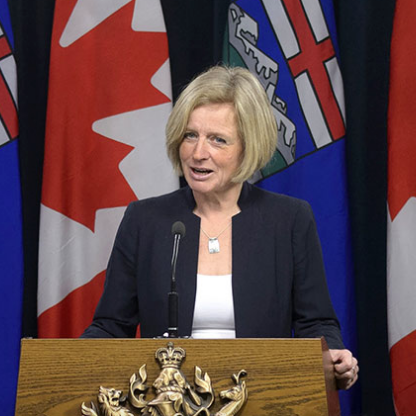 February 2018 | Ricardo Acuña
February 2018 | Ricardo Acuña
Let’s share actual facts about the Trans Mountain pipeline
At the core of the current battle between the governments of Alberta and BC is the assertion by Premier Notley and Prime Minister Trudeau that the economic benefits of the Trans Mountain Expansion Project are sufficient to justify the increased risk of environmentally disastrous spills and the additional contribution to climate change. The problem is that no TMX proponents have actually put forward credible and current evidence that this is the case.
Favourites from the archives
December 2016 | Marc Lee
 Kinder Morgan’s pipeline sales pitch: Too good to be true?
Kinder Morgan’s pipeline sales pitch: Too good to be true?
The economic case often touted for the Trans Mountain Pipeline Expansion was commissioned by Kinder Morgan, and uses flawed approach. Simply put, the assumptions made at every stage of their calculation are dubious, leading to exaggerated numbers that are simply too good to be true.
June 2017 | David Hughes
Kinder Morgan’s Trans Mountain pipeline approval based on false assumptions
When determining whether or not the pipeline expansion from Edmonton to Burnaby will proceed, a major consideration should be that approval for the project was based on a number of faulty assumptions.
July 2016 | David Hughes
Correcting the Fraser Institute’s crude assumptions
The Fraser Institute’s report, The Costs of Pipeline Obstructionism, claims that lack of new export pipelines to tidewater is costing Canada $2.02–$6.4 billion dollars per year (depending on the assumed oil price). But the report is based on flawed analysis, and should not be taken seriously in deliberations on the need for new export pipelines to tidewater or in the development of Canada’s climate plan to meet its Paris Agreement commitments.
November 2016 | Shannon Daub & Mike Lang
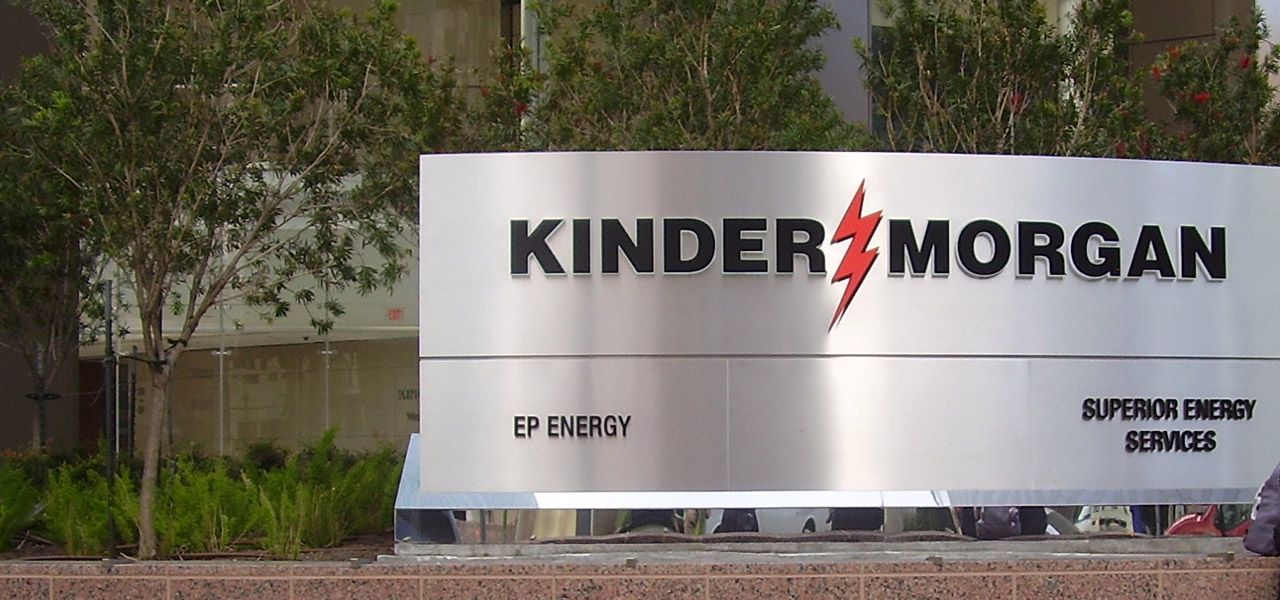 826 reasons Kinder Morgan got a green light for its Trans Mountain pipeline expansion
826 reasons Kinder Morgan got a green light for its Trans Mountain pipeline expansion
Shannon Daub and Mike Lang added up the lobbying efforts of Kinder Morgan and its subsidiary Trans Mountain, and found a whopping 826 BC and federal lobbying contacts over six years, up until Fall 2016. This amounts to about one contact every two business days during that period (not to mention those in Alberta that we do not have information about).
March 2017 | Nicolas Graham, Shannon Daub & Bill Carroll
5.2 million reasons the fossil fuel industry has the BC government’s ear
Nicolas Graham, Shannon Daub and Bill Carroll tallied up all political donations by fossil fuel companies (including Kinder Morgan) and industry organizations to the BC Liberal Party and the New Democratic Party of BC (the two leading parties) between 2008 and 2015. Over this period, 48 fossil fuel companies and industry groups donated a whopping $5.2 million. These contributions dovetail with trends in lobbying and access to key political decision makers—painting a deeply troubling picture of the state of democracy in BC.
January 2016 | Marc Lee
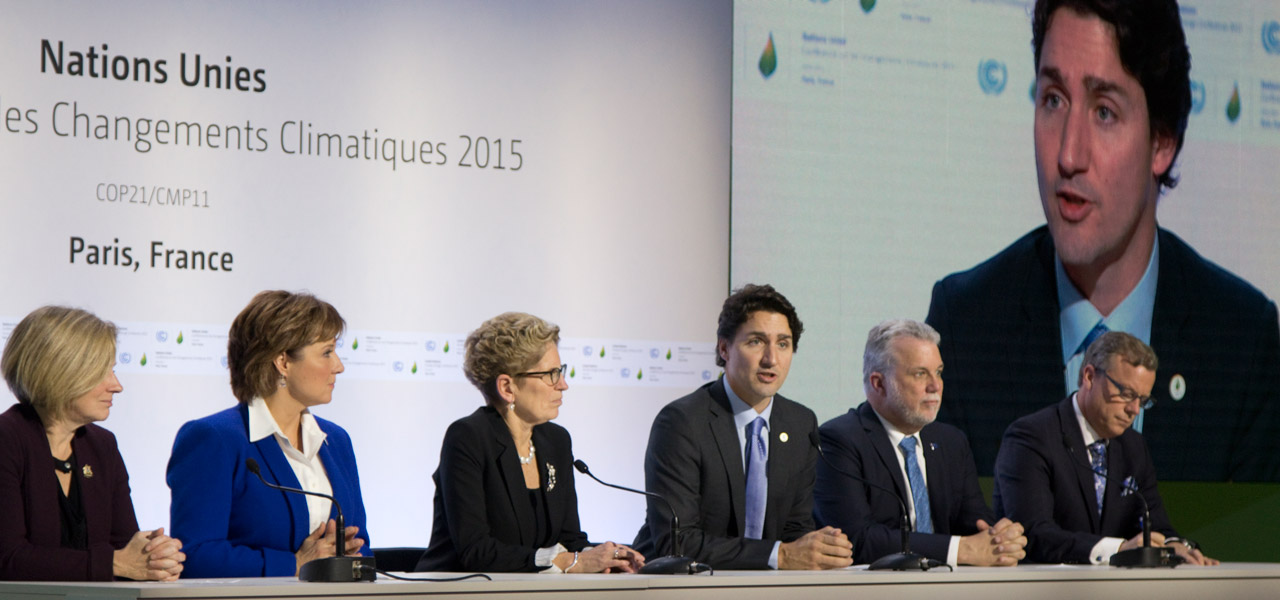 Canada cannot have it both ways on climate and fossil fuel expansion
Canada cannot have it both ways on climate and fossil fuel expansion
With great fanfare and a claim that “Canada is back,” Prime Minister Trudeau helped usher in the Paris Agreement on climate change in December 2015. Since then, however, the federal government has pushed to expand fossil fuel production through new bitumen pipelines and LNG terminals.
April 2016 | Marc Lee
Pipelines vs Paris: Canada’s climate conundrum
Marc Lee looked at the emissions implications of three pipelines proposals at the time of his writing (April 2016): Enbridge’s Northern Gateway, Kinder Morgan’s Trans Mountain expansion and TransCanada’s Energy East.
September 2016 | Seth Klein & Shannon Daub
The New Climate Denialism: Time for an intervention
Shannon Daub and Seth Klein describe a new form of climate denialism, in which the fossil fuel industry and our political leaders assure us that they understand and accept the scientific warnings about climate change — but are in denial about what this scientific reality means for policy and/or continue to block progress in less visible ways.
Presentations
August 2016 | Seth Klein
The wrong direction: A presentation on the proposed Trans Mountain Pipeline expansion
In August 2016, CCPA–BC Director Seth Klein presented to the federal Ministerial Panel holding consultations on the Kinder Morgan Trans Mountain Pipeline Expansion Proposal.
Reports and studies
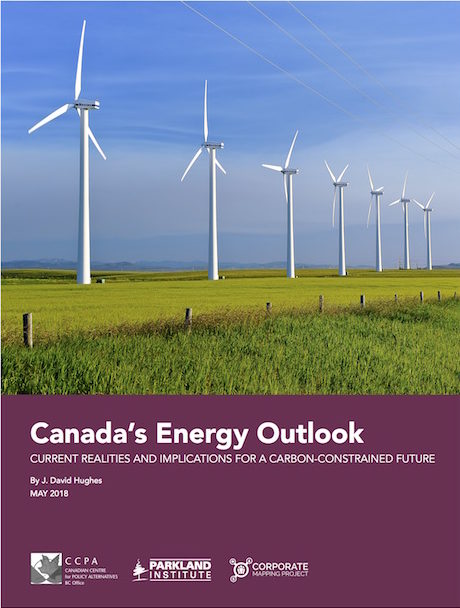 |
May 2018 | David Hughes Canada’s Energy Outlook: Current realities and implications for a carbon-constrained future This study serves as a definitive guide to Canada’s current energy realities and their implications for a sustainable future. It takes a detailed look at Canadian energy consumption, renewable and non-renewable energy supply, the state of Canada’s resources and revenues, and what it all means for emissions-reduction planning. Canadians need a viable and sustainable long-term energy strategy, based on availability, scalability, cost, environmental impacts and alternatives of all energy options. |
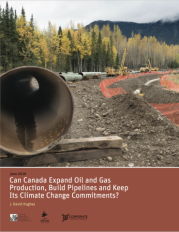 |
June 2016 | David Hughes Can Canada Expand Oil and Gas Production, Build Pipelines and Keep Its Climate Change Commitments? Under the Paris Agreement, Canada has pledged to reduce its greenhouse gas emissions to 30% below 2005 levels by 2030. This study assesses the consequences of several scenarios of expansion in the oil and gas sector in terms of the amount that the non–oil and gas sectors of the economy would need to reduce emissions to meet Canada’s Paris commitments. It finds Canada cannot meet its global climate commitments while at the same time ramping up oil and gas extraction and building new export pipelines. |
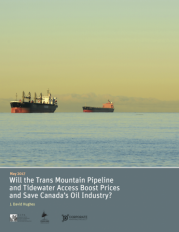 |
May 2017 | David Hughes Will the Trans Mountain Pipeline and Tidewater Access Boost Prices and Save Canada’s Oil Industry? One of the primary rationales for Kinder Morgan’s Trans Mountain pipeline expansion project is to maximize the price for Alberta bitumen by getting oil from Alberta to “tidewater”. Tidewater refers to ocean access in order to ship oil to overseas markets via tankers. Industry and the federal and Alberta governments argue that a pipeline to tidewater will unlock new markets where Canadian oil can command a better price than in the US, where the majority of Canadian oil is currently exported. This paper examines the tidewater argument and other problematic assumptions that led to the pipeline’s approval. |
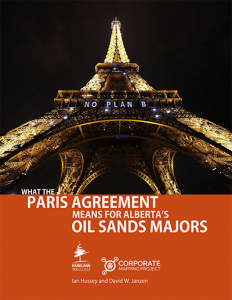 |
January 2018 | Ian Hussey & David Janzen What the Paris Agreement Means for Alberta’s Oil Sands Majors This report evaluates what the Paris Agreement on climate change means for oil sands producers, estimating the social cost of carbon (SCC) of the oil and gas reserves of these firms. It finds that fossil fuel companies are significantly overvalued by financial markets because their carbon liabilities have not been taken into account. When we account for the full cost of carbon, Alberta’s oil sands industry looks like a carbon bubble that could pop sooner rather than later. |
Shareable graphics
|
|
|
